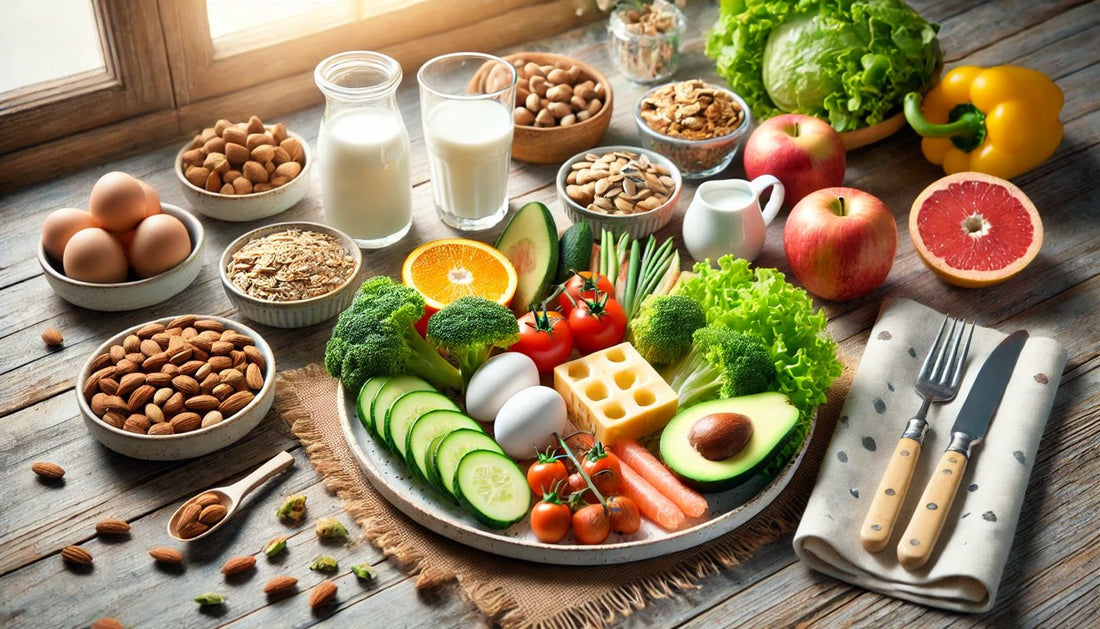
Nutrition During Pregnancy: Eating Right for a Healthy Mom and Baby
Pregnancy is a time of immense change, and proper nutrition plays a crucial role in ensuring the health and well-being of both the mother and the growing baby. Every meal you eat provides essential nutrients that support fetal development, maintain maternal health, and prepare your body for childbirth. Eating a balanced diet can also help manage common pregnancy symptoms like nausea, fatigue, and cravings.
Essential Nutrients for Pregnancy
1. Folic Acid (Vitamin B9)
• Why It’s Important: Supports neural tube development, preventing birth defects.
• Sources: Leafy greens, citrus fruits, fortified cereals, beans, and lentils.
2. Iron
• Why It’s Important: Helps in red blood cell production and prevents anemia.
• Sources: Spinach, red meat, poultry, fish, beans, and fortified grains.
3. Calcium
• Why It’s Important: Essential for baby’s bone and teeth development.
• Sources: Dairy products, almonds, tofu, sardines, and leafy greens.
4. Protein
• Why It’s Important: Supports growth and development of fetal tissues, including the brain.
• Sources: Eggs, chicken, fish, dairy, nuts, seeds, and legumes.
5. Omega-3 Fatty Acids
• Why It’s Important: Promotes brain and eye development in the baby.
• Sources: Fatty fish (salmon, sardines), flaxseeds, walnuts, and chia seeds.
6. Fiber
• Why It’s Important: Prevents constipation and promotes digestive health.
• Sources: Whole grains, fruits, vegetables, and legumes.
7. Vitamin D
• Why It’s Important: Helps in calcium absorption and bone development.
• Sources: Sunlight, fortified dairy products, fish, and egg yolks.
8. Hydration
• Why It’s Important: Maintains amniotic fluid levels and prevents dehydration.
• Sources: Water, fresh juices, coconut water, and hydrating fruits like watermelon.
What to Eat During Pregnancy
1. A Balanced Daily Meal Plan
A well-rounded diet should include:
✔ Breakfast: Oatmeal with nuts and fruits, whole-grain toast with avocado, or eggs with vegetables.
✔ Lunch: Grilled chicken or paneer with whole grains and a side of vegetables.
✔ Snacks: Nuts, yogurt, fruits, or whole-grain crackers with hummus.
✔ Dinner: Fish or lentils with brown rice and steamed veggies.
2. Healthy Pregnancy Snacks
• Greek yogurt with honey and berries.
• A handful of nuts and seeds.
• Whole-grain toast with peanut butter.
• Boiled eggs or cheese slices.
Foods to Avoid During Pregnancy
1.Raw or Undercooked Foods: Sushi, raw eggs, and undercooked meat can carry harmful bacteria.
2.Excessive Caffeine: Limit to 200 mg per day (about one cup of coffee).
3.Processed Foods & Sugary Drinks: Can lead to excessive weight gain and gestational diabetes.
4.Alcohol & Smoking: Can cause developmental issues and pregnancy complications.
Final Tips for a Healthy Pregnancy Diet
• Listen to Your Body: Eat when you’re hungry but avoid overeating.
• Plan Small, Frequent Meals: Helps prevent nausea and keeps energy levels stable.
• Take Prenatal Vitamins: Supplements prescribed by your doctor help meet nutritional needs.
• Stay Active: Light exercise like walking or prenatal yoga supports digestion and circulation.
By maintaining a nutritious diet, you provide your baby with the best start in life while keeping yourself healthy and energized throughout pregnancy. Enjoy this special journey with mindful eating and nourishing choices!
Tags:
Previous
Pregnancy: A Journey of Love, Care, and Transformation
Next
Your Baby’s First Week: What to Expect and How to Care for Your Newborn



